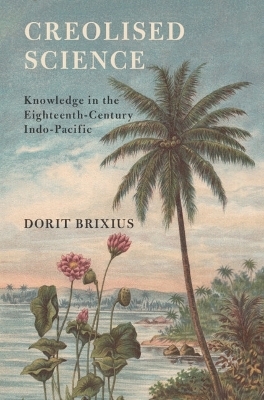
Creolised Science
Knowledge in the Eighteenth-Century Indo-Pacific
Seiten
2024
Cambridge University Press (Verlag)
978-1-009-20044-8 (ISBN)
Cambridge University Press (Verlag)
978-1-009-20044-8 (ISBN)
The first comprehensive study of cross-cultural plant knowledge in eighteenth-century Mauritius, Creolised Science explores how plants and practices adapted to a new environment and a new socio-cultural space. By foregrounding neglected non-European actors from both Africa and Asia, Brixius creates a truly global history of botanical knowledge.
This rich, deeply researched study offers the first comprehensive exploration of cross-cultural plant knowledge in eighteenth-century Mauritius. Using the concept of creolisation – the process by which elements of different cultures are brought together to create entangled and evolving new entities – Brixius examines the production of knowledge on an island without long-established traditions of botany as understood by Europeans. Once foreign plants and knowledge arrived in Mauritius, they were adapted to new environmental circumstances and a new socio-cultural space. Brixius explores how French colonists, settlers, mediators, labourers and enslaved people experienced and shaped the island's botanical past, centring the contributions of subaltern actors. By foregrounding neglected non-European actors from both Africa and Asia, within a melting pot of cultivation traditions from around the world, she presents a truly global history of botanical knowledge.
This rich, deeply researched study offers the first comprehensive exploration of cross-cultural plant knowledge in eighteenth-century Mauritius. Using the concept of creolisation – the process by which elements of different cultures are brought together to create entangled and evolving new entities – Brixius examines the production of knowledge on an island without long-established traditions of botany as understood by Europeans. Once foreign plants and knowledge arrived in Mauritius, they were adapted to new environmental circumstances and a new socio-cultural space. Brixius explores how French colonists, settlers, mediators, labourers and enslaved people experienced and shaped the island's botanical past, centring the contributions of subaltern actors. By foregrounding neglected non-European actors from both Africa and Asia, within a melting pot of cultivation traditions from around the world, she presents a truly global history of botanical knowledge.
Dorit Brixius is a historian of global science and medicine interested in eighteenth-century botany and France's Indian Ocean colonies.
Introduction; 1. The limits of French colonial visions and science; 2. The acquisition of knowledge and plants, from Madagascar to China; 3. Agriculture and everyday knowledge; 4. Enslaved people as knowledge carriers; 5. The cross-cultural quest for spices in Southeast Asia; 6. Materials, environment, and the application of knowledge; Conclusion.
| Erscheinungsdatum | 23.03.2024 |
|---|---|
| Reihe/Serie | Science in History |
| Zusatzinfo | Worked examples or Exercises |
| Verlagsort | Cambridge |
| Sprache | englisch |
| Maße | 159 x 235 mm |
| Gewicht | 540 g |
| Themenwelt | Geisteswissenschaften ► Geschichte ► Regional- / Ländergeschichte |
| Geschichte ► Teilgebiete der Geschichte ► Wirtschaftsgeschichte | |
| Naturwissenschaften | |
| ISBN-10 | 1-009-20044-5 / 1009200445 |
| ISBN-13 | 978-1-009-20044-8 / 9781009200448 |
| Zustand | Neuware |
| Informationen gemäß Produktsicherheitsverordnung (GPSR) | |
| Haben Sie eine Frage zum Produkt? |
Mehr entdecken
aus dem Bereich
aus dem Bereich


